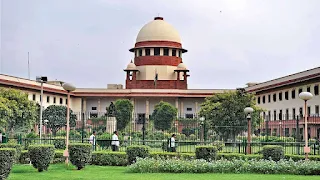ഓരോ നിയമപ്രശ്നത്തിനും ഓരോ പരിഹാരമാർഗ്ഗമുണ്ട് . നിയമപരമായ ഒരു അവകാശം നിഷേധിക്കുകയാണെങ്കിൽ അതിനൊരു നിയമാനുസൃത പരിഹാരവുമുണ്ട് .
സ്വതന്ത്ര സമൂഹത്തിന്റെ നീതിന്യായവ്യസ്ഥ ഈ തത്വത്തിലാ അധിഷ്ഠിതമായിട്ടുള്ളത് .
ഇങ്ങനെ നിയമ അവകാശം നഷടപ്പെട്ടവർക്ക് പരിഹാരം ലഭ്യമാക്കുന്നതിനാണ് നമ്മുടെ നാട്ടിൽ സിവിൽ - ക്രിമിനൽ കോടതികൾക്കു പുറമെ വ്യവസായ തർക്ക ട്രിബ്യൂണലുകളും ലാന്റ് ട്രിബ്യൂണലുകളും മോട്ടോർ ആക്സിഡന്റ് ക്ലെയിം ട്രിബ്യൂണലുകളും വാടകനിയന്ത്രണ കോടതികളും മറ്റും സ്ഥാപിച്ചിട്ടുള്ളത് .
സിവിൽ കോടതികൾ
സിവിൽ തർക്ക പരിഹാരങ്ങൾക്കായി സമീപിക്കാവുന്ന ഏറ്റവും താഴെക്കിടയിലുള്ള കോടതികളാണ് മുൻസിഫ് കോടതികൾ .
ഒരുലക്ഷം രൂപയിൽ കവിയാത്ത തർക്കങ്ങൾ മുൻസിഫ് കോടതിയിൽ വരുന്നു .
തൊട്ടുമുകളിലായി സബ് കോടതികളും അതിനുമുകളിലായി ജില്ലാ കോടതികളും ഹൈക്കോടതിയും നിലകൊള്ളുന്നു .
മുൻസിഫ് കോടതികളുടെ തീർപ്പുകളിന്മേലുള്ള അപ്പീലുകളും ഒരുലക്ഷം രൂപയ്ക്കുമുകളിലുള്ള സാമ്പത്തിക പ്രശ്നങ്ങളും സബ്കോടതിയാണ് പരിഗണിക്കുന്നത് .
There is a solution to every legal problem. If a legal right is denied, there is a legal remedy for it.
The justice system of a free society is based on this principle.
In addition to the civil and criminal courts, industrial dispute tribunals, land tribunals, motor accident tribunals and rent control courts have been set up in our country to provide redress to those who have thus lost their legal rights.
Civil courts
The Munsif Courts are the lowest court that can be approached for the settlement of civil disputes.
Disputes not exceeding Rs 1 lakh are coming before the Munsiff Court.
Just above are the Sub-Courts, the District Courts and the High Courts.
The Sub-Court hears appeals against the decisions of the Munsiff Courts and financial issues above Rs. 1 lakh.
Criminal courts
Cases of a criminal nature are considered before a first-class magistrate's court. The magistrate also has the power to grant bail for non-bailable offenses.The first class magistrate has the power to imprison for three to five years and a fine of up to Rs 5,000.
Just above it is the Chief Judicial Magistrate Court (CJM Court).That court has the power to impose a maximum sentence of imprisonment of not less than 7 years and a fine without limit. The administrative control of the Magistrates' Courts is vested in the CJM Court. In addition, there is an Assistant Sessions Court and a Sessions Court. They consider appeals from Magistrates' Courts and cases in which the Sessions Judge is the sole judge. Bail-in such cases is also granted by the Sessions Judge.
Family Court
Under the Family Court Act, 1984, all marriage cases are considered in the Family Courts.
Apart from them, property disputes arising out of marriage also come under the jurisdiction of this Court.
When the case comes up for consideration, both parties will be called and an attempt will be made to reach a compromise with the help of councilors.
Family courts do not have the power to adjudicate cases under the Muslim Divorce Protection Act in marital cases. In districts where the family court does not exist, cases have to be filed in the relevant court as per the law.
Tribunals
In addition to the courts, there are auto law tribunals, industrial employment dispute tribunals, consumer dispute resolution forums and land tribunals under different laws.
High Court
In civil cases, if the dispute is worth more than Rs 2 lakh, the decision of the sub-court should be appealed in the high court.Second appeals can also be made to the High Court in some cases involving important legal issues.
The High Court has the power to impose any statutory punishment in criminal cases.The High Court has the power to appeal against the judgment of the Assistant Sessions Court and the judgment of the Sessions Court, which carries a maximum sentence of 7 years imprisonment.
The High Court hears writ petitions in cases of violation of fundamental rights and other legal remedies, as well as petitions under Article 227 of the Constitution against the judgment of tribunals without ordinary courts.
Supreme Court
The Supreme Court is the highest court of India. The Supreme Court hears appeals and writ petitions from the High Courts. The Supreme Court's decision is final on important constitutional issues, Mauli rights issues, and all other legal issues.
In addition to the above courts and tribunals, legal action can be taken against the Taluk Legal Services Committee, the District Legal Services Authority, the High Court Legal Services Committee, and the State Legal Services Authority.
